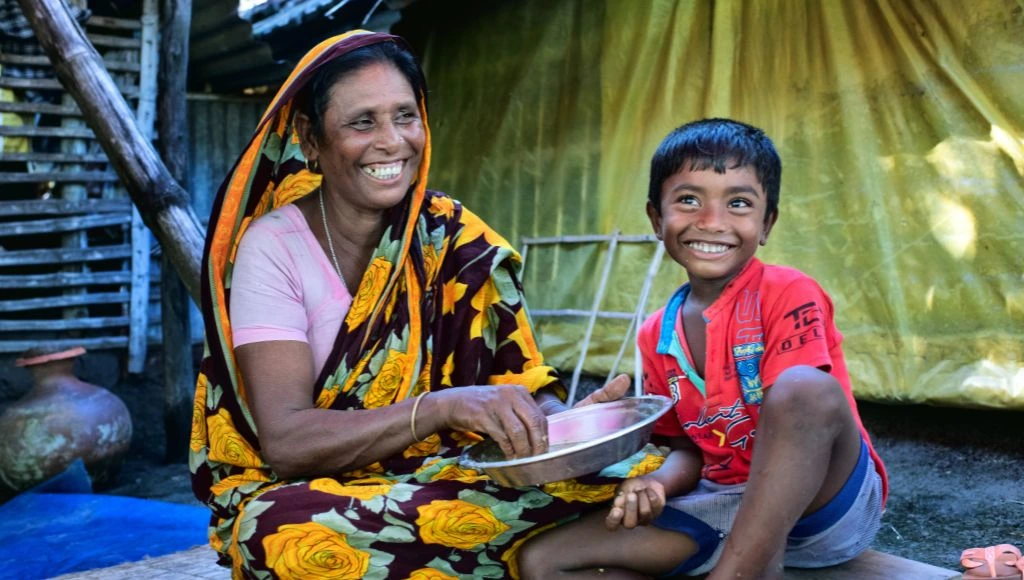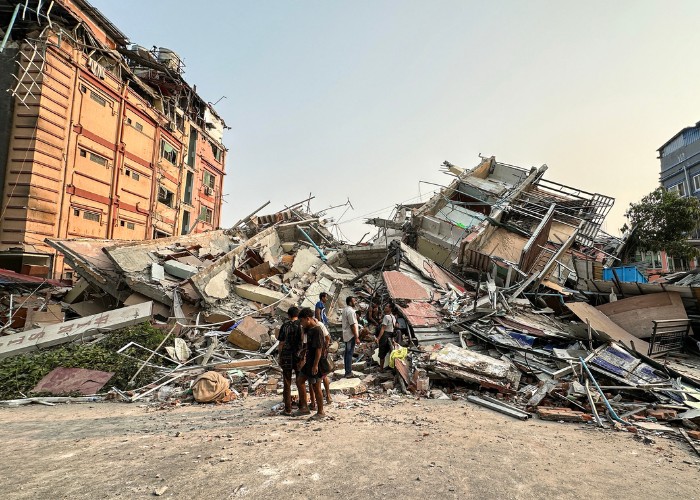Sabuda lives on the low-lying banks of the Ichamati River in Bangladesh with her husband, two daughters and son. The landscape of Sabuda’s hometown is ever changing as a result of climate change.
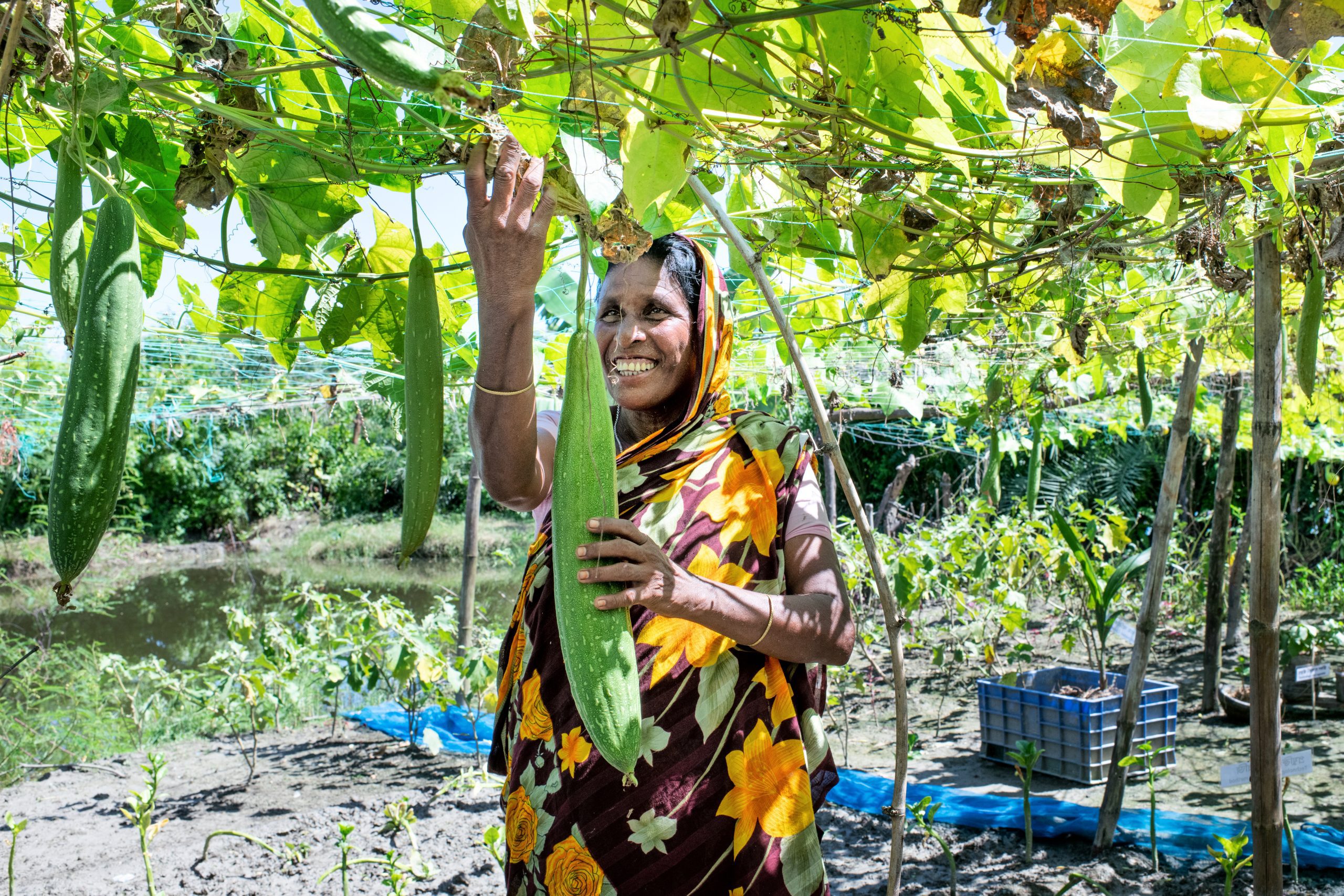
Sabuda Begum is working in her vegetable garden. Sabuda Begum and her husband MD Mosel Uddin Begh now work hard in their vegetable garden, fish farm to provide for their family. Now they are self-sufficient and getting nutritious food from their own vegetable garden. Satkhira, Bangladesh
Flash flooding, cyclones and erosion have made it impossible to earn a living through farming as the village is now underwater for half of the year – forcing Sabuda and her family to work in low-paid, heavy manual labour jobs.
Local knowledge of farming techniques is dwindling and becoming obsolete as persistent waterlogging has driven farmers to look elsewhere for work.
“We have experienced many disasters,” says Sabuda. “Cyclones, floods and erosion have destroyed our home more than eleven times now. Every year we spend three months with our land underwater. It takes another three months to dry out and get back to everyday life. We are trying our best, fighting with nature and loss.”
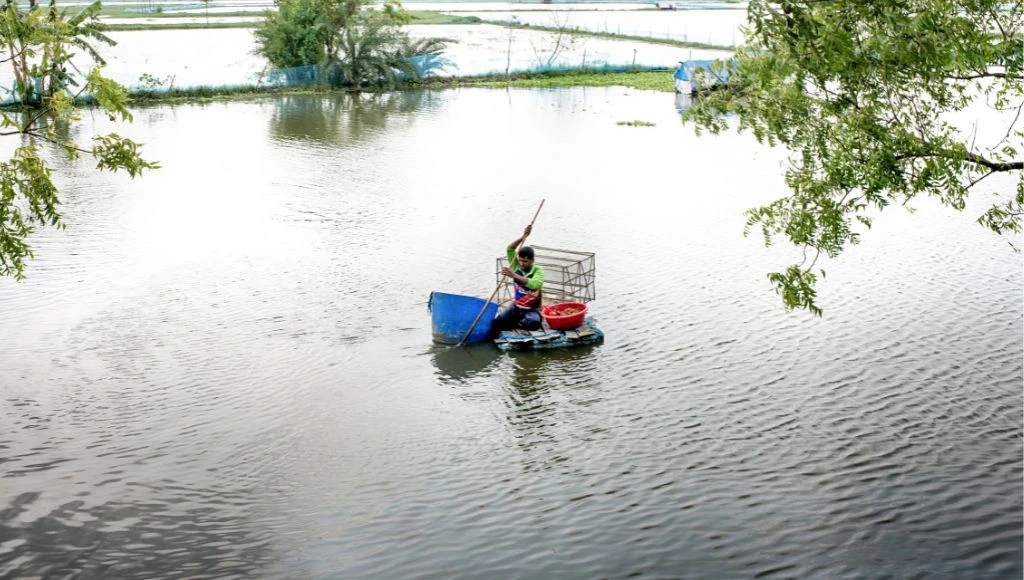
Sabuda’s husband, now in his mid-seventies, has always worked very hard to provide for the family – yet they struggled and starved for countless days. Sabuda also continued to support the family by working as a day labourer.
“My husband got paid 250 Taka (£2) per day,” Sabuda recalls. “I got 100 Taka (less than £1), because women always get less than men. We worked the same hours, did the same work like digging the canal, working in the field, or working in the embankment. Our lives were miserable, I could not educate my children because we had no money to support them after providing food. ”
When the family had no work, they could hardly afford to buy rice or salt. They couldn’t grow anything in their yard because they didn’t have any savings. They had no idea how to grow vegetables or rear livestock.
“We were deprived of nutritious food and so we were suffering with health problems.”
In Bangladesh, the Soneva Foundation and Action Against Hunger have teamed to help communities like Sabuda’s adapt to climate change. Together, we’re teaching families new skills and offering business training – as well as increasing their food production at home using climate-change resistant farming methods. This dual action plan ensures that families can access nutritious food either from their gardens or with their income.
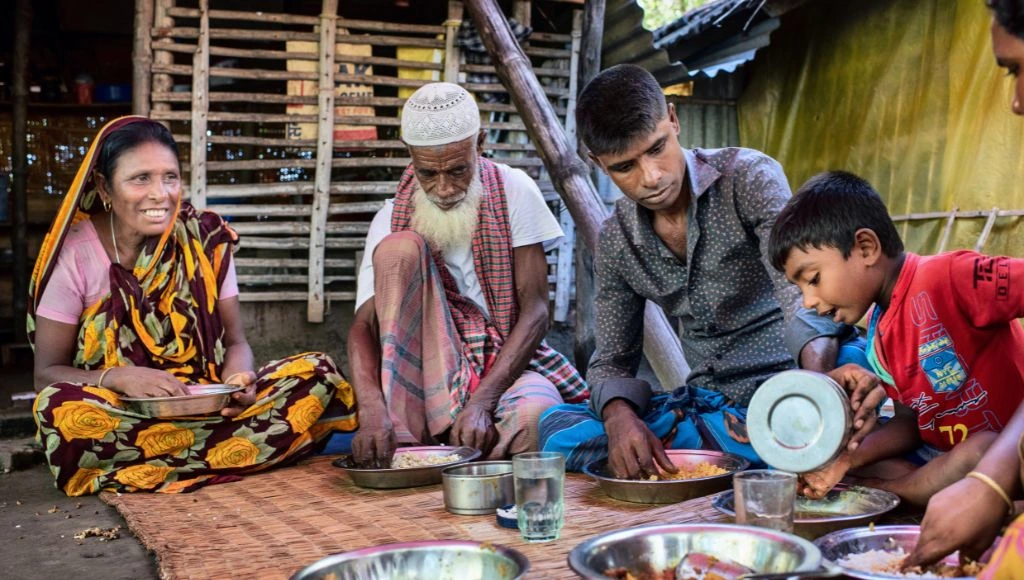
“I first came to know about the project when we were digging a canal in our area. My husband and I both went to the training programmes. We have learned how to grow vegetables in our yard, fishing and now have our cattle.”
Sabuda’s family are now fully self-sufficient. With their constant effort, their vegetable garden has grown even bigger. After keeping vegetables for their family, they now sell vegetables to their neighbours. Sabuda’s six-year-old grandson Mahfuz is now going to school and the family are able to provide for his education.
“Now we don’t have to depend on others,” says Sabuda. “My husband and I both work in our pond, vegetable garden and make fishing nets. At our age, now we can have our income by working in our yard.”
“My husband’s health has improved and I’m now doing much better than before. I don’t have to spend all day long in the saline water and work tirelessly. If I feel unwell, I can rest and always can take some breaks. We’re saving dreams from ruins.”
“Our life has been transformed. We are building dreams from ruins.”
Shilpi’s story
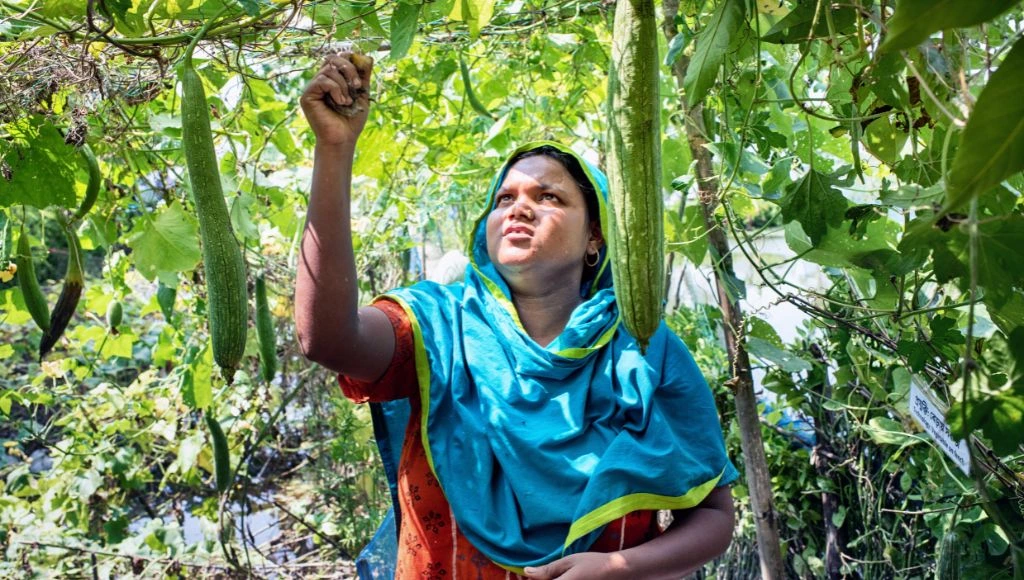
Shilpi lives with her husband and three sons on a coastal island in Bangladesh.
As the climate crisis worsens, living so close to a river means that every year Shilpi’s possessions and any hope of earning a reliable living are washed away by the rising flood waters.
“I got married at a very young age,” says Shilpi. “In our area, girls got married every time disaster hit us.”
“Every year, while reoccurring cyclones and disasters happen, they take away our possessions. Cows, goats, chickens get washed away every time we face disaster. With small children, life on a coastal island is very challenging.”
Their land stayed waterlogged for at least three months of the year, and they couldn’t get any work during flood season. There were days when they starved.
When Shilpi had almost given up hope, she came to know about Action Against Hunger’s programmes in the region. Together with her husband, she took several training courses and learnt to become self-sufficient by working on what they already had.
“We started growing vegetables in our yard. Then we expanded our garden and grew seasonal fruits.”

“We stopped working as day labourers. Before I could not give time to our kids. But once we started working in our garden, I can now give time to our children.”
Two years ago, Shilpi’s youngest child became ill because they couldn’t feed him enough nutritious food. It was an incredibly hard time for the family because his recovery took a long time. But now, Shilpi and her husband can provide for their children. Her children love fish and Shilpi’s husband brings home fish from the pond almost every day now.
“My children’s health has improved so much and I find I have more energy as well,” says Shilpi.
After selling eggs in the market, Shilpi can give eggs to her family for their breakfast every day. This was never possible before.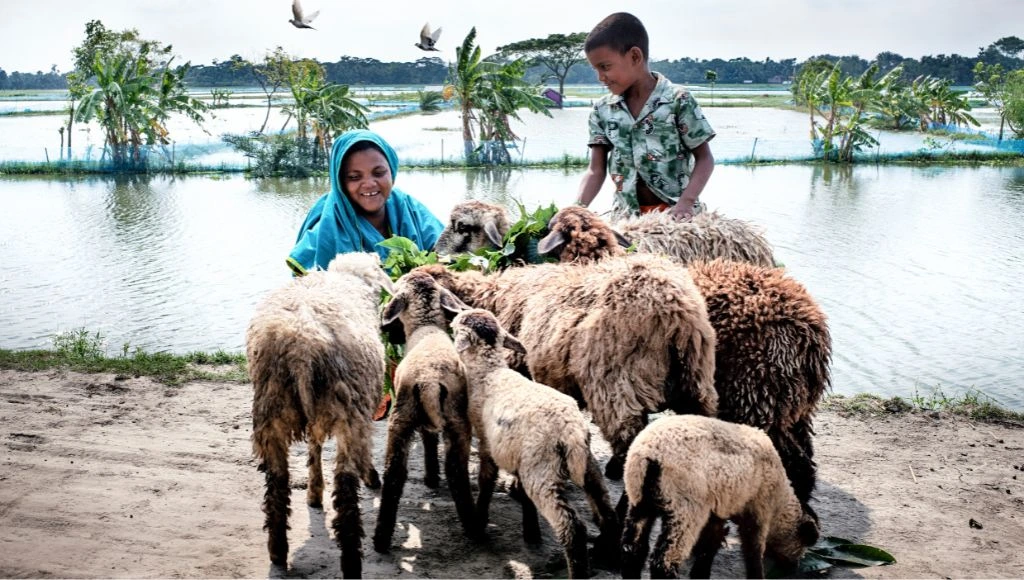
Shilpi is also delighted her children can now go to school. None of her family were able to go to school before because of extreme poverty, but she now helps her son with his studies.
“I feel content knowing our hard work is paying for their future,” adds Shilpi. “We have experienced transformation. Our life has changed and we are grateful. I cannot imagine what we could do if we had not received this support. Now we eat well and have a good time together. I do not feel tired and deprived of happiness anymore. We feel proud.”
“We want to continue working for our children for a better tomorrow.”
This work was made possible thanks to the amazing support of the Soneva Foundation.

